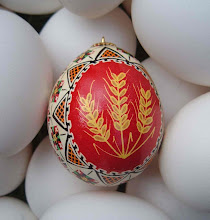Saturday, February 6, 2010
Where to get seeds for the garden
LOCALLY
I buy some seeds locally at garden stores, mostly Burpee's at half price (just got 19 seed packets for $20), and Agway seeds. I try to stay away from the grocery store seeds. Not all seeds are created equal. Even when the variety is good the viability and germination may be lower, or the seeds may not have been tested for seed-borne disease. I like to order from catalogs, but there's no need to. The seed racks carry the most reliable varieties for our area, and the prices are good. So if this weren't a pleasure of mine I'd be content to just buy what the seed racks offer. Sometimes when I buy the hot new variety I regret it, because it might not prove as productive or strong as the old favorites. On the other hand, there are some outstanding varieties that never make it onto the seed racks.
CATALOGS
The catalogs I currently order from the most are Johnny's Seeds (Albion Maine) and Territorial Seeds (a northwestern company). Johnny's still develops new varieties, which I think matters. Both Johnny's and Territorial are northern companies, and they've selected for varieties that grow well in the north. Territorial has warm winters though, so that gives them options we don't have. Gardener's Supply has a Johnny's seed rack.
The catalogs for both are really essential tools for me, as they both have outstanding cultural notes for every variety. These are the cultural notes for radishes in the Territorial catalog. Notice they tell you the usual seed life (at the bottom). This is a photograph, not a scan. Sorry for the eyestrain.
This is a picture of the cultural notes for eggplant in Johnny's catalog.
Burpee is good but expensive (it may be that everybody sells Burpee seeds half price in seed racks, so the "regular" price has to be high). I've also ordered from Pinetree Gardens, Park Seeds, Harris Seeds, Cook's Garden (no longer a Vermont company, though it once was. Now owned by Burpee), Vermont Bean Seeds (now in Randolph Wisconsin. Sheesh) The main reason I don't order from lots of companies is the expense for shipping costs. Pinetree has a lot of specialty Italian and Asian varieties. Vermont Bean Seeds has in incredible number of seeds for dried beans.
It's hard for the relatively small seed companies that cater to the home gardener to survive (and so companies like Cook's Garden join larger companies like Burpee), and this is one of the reasons I like to support companies still breeding new varieties for home gardeners. Johnny's Seeds have always catered to the market gardener as well, and that is more evident in this year's catalog. Hope they don't totally opt for varieties that ship well.
A month ago I found online my favorite tomato ever, Yellow Bell, which I ordered. I've checked other years and not found it. Pinetree gardens used to sell it, then the last year they did (2002) the plants produced a yellow plum that wasn't at all like the yellow bell I'd gotten from them before. That year I had traded a plant with Shep Ogden when he still had his trials for Cook's Garden in the Intervale beside Gardener's Supply. I gave him a yellow bell, and he gave me a totally unmemorable plant to try (he didn't know it would be). I had hoped he would think this was an outstanding tomato and I was really disappointed that the plants didn't come true to type.
But the tomatoes in the picture at the Southern exposure Seed Exchange look just about right - a true pear shape, with lobes, rather than a plum tomato shape. They say they introduced the variety, which is a Tennessee heirloom Can't wait. Sent them an email telling them how grateful I am they carry this heirloom.
The flavor of the yellow bell is wonderful, and there's a faint blush of pink on some of the fruit, which you can just see in the picture online. The tomatoes taste good before they are fully ripe (a characteristic shared by sun gold cherry tomatoes) and the bells stay on the vine for a long time after they're ripe, and keep well on the shelf. A perfect tomato.
Tomato seeds are almost always self-pollinting, so it's easy to save seed from them. In fact, the anthers come up and form a little cage around the pistil, helping to ensure they are self-pollinated. You will occasionally see bees on the blossoms though, so protecting the plants you're saving seed from is a good idea. I'll be sure to save some yellow bell this year if the new seeds meet my expectation.
SAVING SEED
So another place to get seeds is from open-pollinated, nonhybrid plants. The easiest, I think, is to save flower seeds - these are zinnias I saved from a neighbor's garden. An advantage of this is that over time - if you save seeds from the best, or earliest, or whatever other superlative appeals to you, you'll gradually improve the variety you plant.
Subscribe to:
Post Comments (Atom)







No comments:
Post a Comment